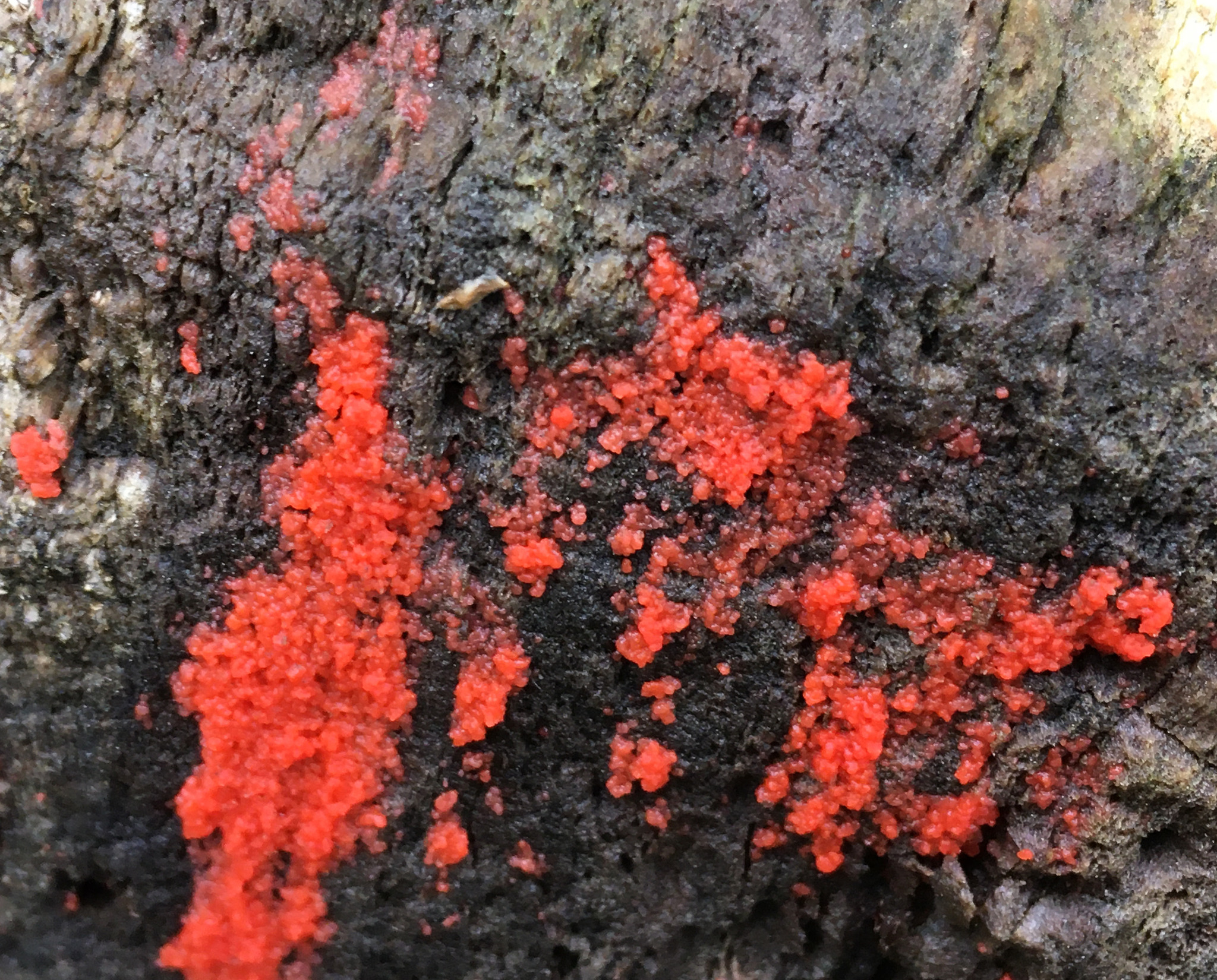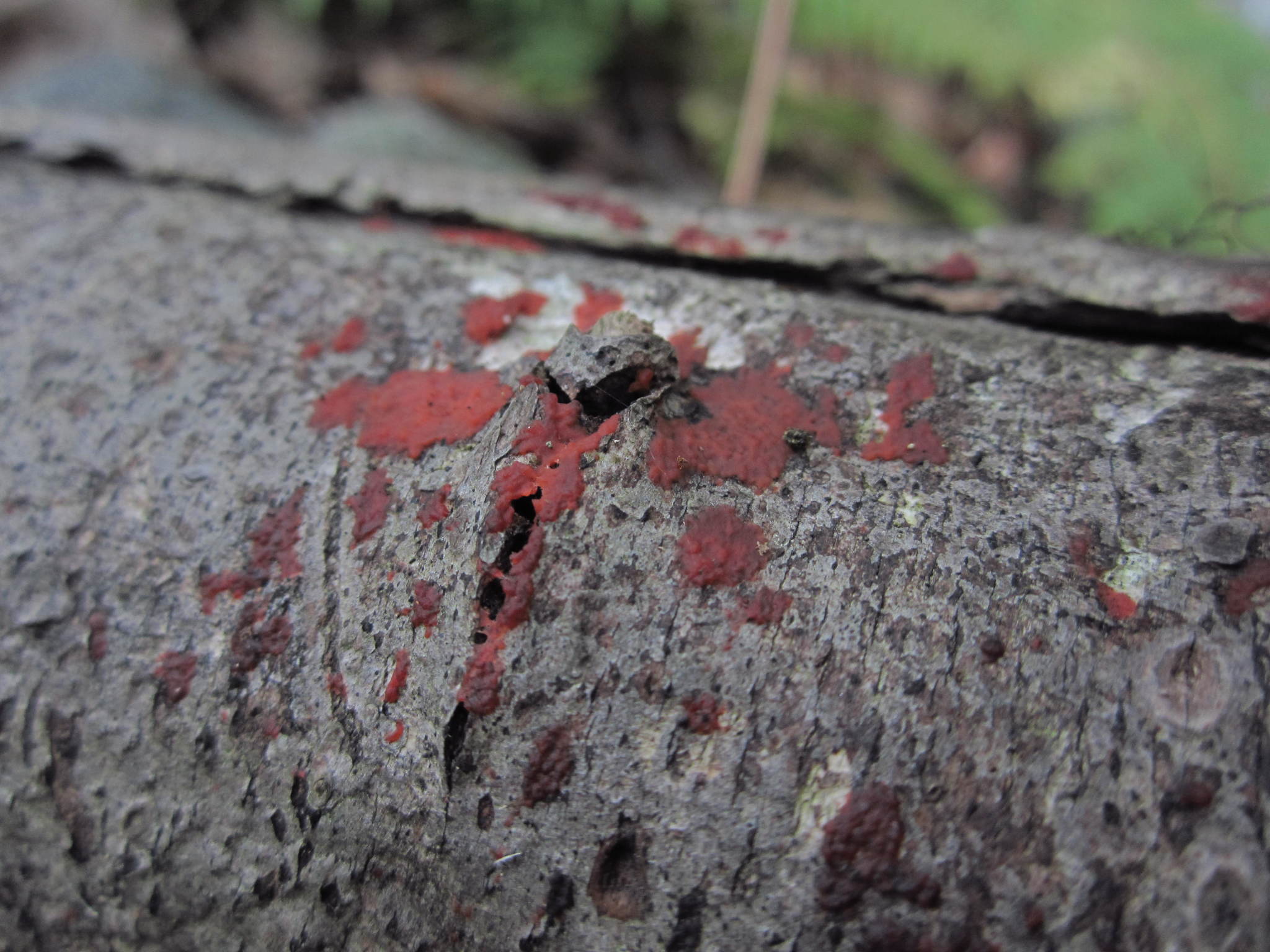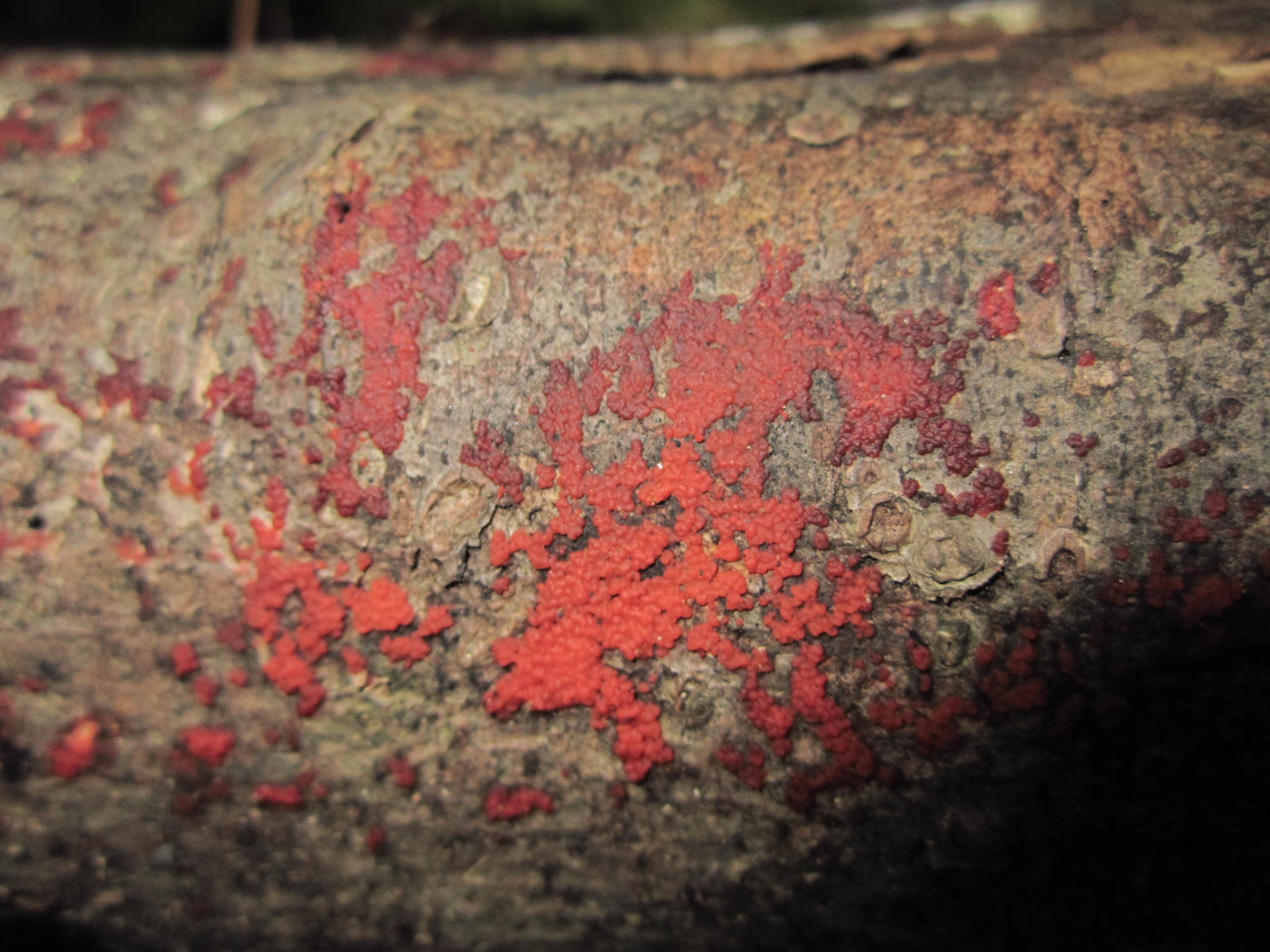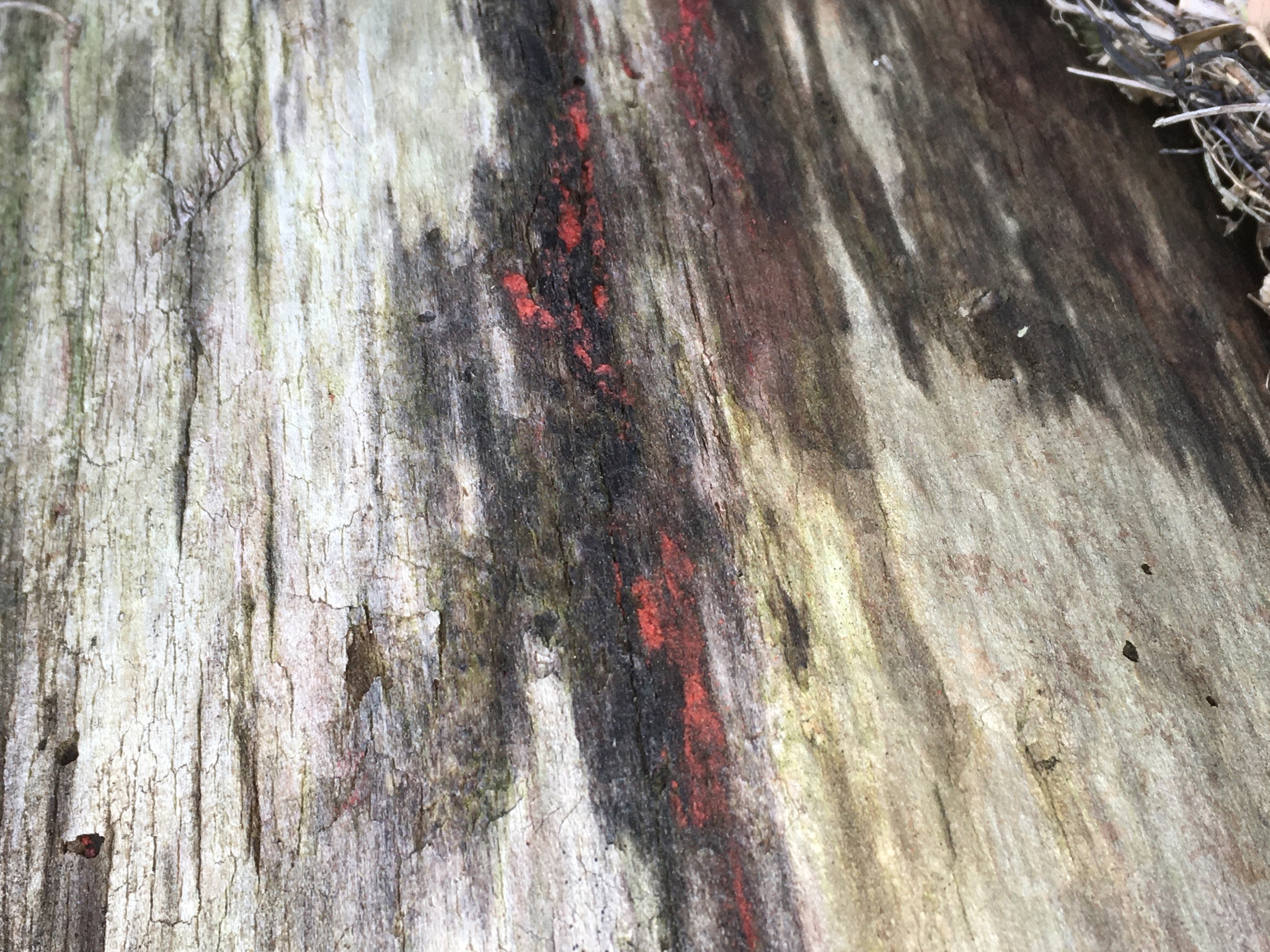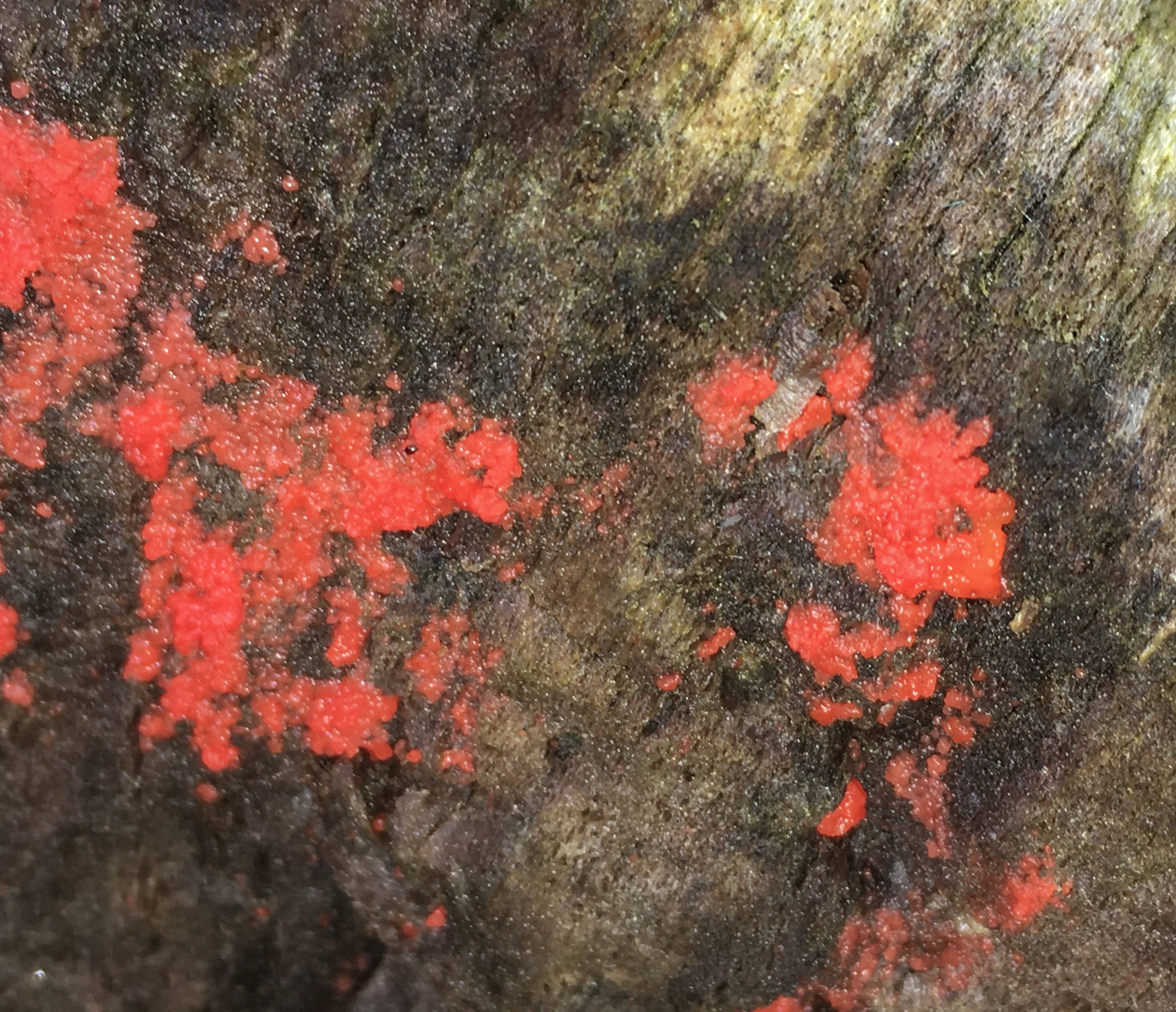Map Snapshot






8 Records
Seasonality Snapshot
Source: Wikipedia
| Tulasnella aurantiaca | |
|---|---|

| |
| Tulasnella aurantiaca, Ohio, USA | |
| Scientific classification | |
| Domain: | Eukaryota |
| Kingdom: | Fungi |
| Division: | Basidiomycota |
| Class: | Agaricomycetes |
| Order: | Cantharellales |
| Family: | Tulasnellaceae |
| Genus: | Tulasnella |
| Species: | T. aurantiaca
|
| Binomial name | |
| Tulasnella aurantiaca (Bonord.) J. Mack & Seifert (2021)
| |
| Synonyms | |
Tulasnella aurantiaca is a species of fungus in the order Cantharellales. It produces orange-red, pustular, gelatinous anamorphic states on dead, deciduous wood. Originally described from Europe, it also occurs in North America where the species appears to be more common.
Taxonomy
[edit]Tulasnella aurantiaca was first published in 1851 by German mycologist Hermann Friedrich Bonorden who placed it in a new genus, Hormomyces. Microscopically, the species produces branched chains of hyaline, globose conidia and no teleomorphic (basidia-bearing) state is known. As a result, its disposition and relationships have long been uncertain. French mycologist Narcisse Théophile Patouillard suggested that Hormomyces aurantiacus was an anamorph of a Dacrymyces species.[1] Italian mycologist Pier Andrea Saccardo later suggested that H. aurantiacus might be the anamorph of Tremella mesenterica,[2] a view accepted by influential Dutch mycologist M.A. Donk.[3] Molecular research, based on cladistic analysis of DNA sequences, has, however, shown that the species is an anamorphic member of the genus Tulasnella.[4]
References
[edit]- ^ Patouillard N. (1900). Essai taxonomique sur les familles et les genres des Hyménomycètes. Lons-Le-Saunier: Lucien Declume.
- ^ Saccardo PA (1916). "Hymeniales (ceterae Agaricaceae, Polyporaceae, Hydnaceae, Thelephoraceae, Tremellaceae)". Flora Italica Cryptogama Fungi. 1: 577−1386.
- ^ Donk MA (1962). "The generic names proposed for Hymenomycetes XII. Deuteromycetes". Taxon. 11 (3): 75−104. doi:10.2307/1216021. JSTOR 1216021.
- ^ Mack J, Assabgui RA, Seifert KA (2021). "Taxonomy and phylogeny of the basidiomycetous hyphomycete genus Hormomyces". Fungal Systematics and Evolution. 7: 177–196. doi:10.3114/fuse.2021.07.09. PMC 8166209. PMID 34124623.
